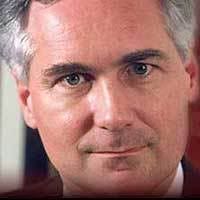The once and future governor Jerry Brown gave an interview to the SF Chronicle’s Carla Marinucci earlier this week in which he suggested that despite the passage of 30 years and proof that anti-tax policies have been a catastrophic failure for California, he will still fight against new taxes:
With the state in fiscal crisis, the job this time around could be a no-win situation, he said, but added: “I would not be advocating new taxes, I’ll tell you that.”…
The California governor’s job this time around could be a no-win situation, he acknowledged. It’s an era when just the state deficit is out of control and budget battles are bloody. There’s no one easy answer, “there’s just pain,” he said.
Still, “I would not be advocating new taxes, I’ll tell you that,” he said. Already, California is “one of the highest tax states around,” he said. “So we’ve got to be competitive. We can’t drive all the jobs out and tax the few people who stay.”
Um…wow. This is not very good stuff for a Democratic gubernatorial candidate to be saying – Brown is reinforcing some of the typical right-wing lies about our state. Keep in mind that in terms of overall taxes we actually rank #17.
Perhaps even worse is his repeating the notion that tax increases hurt competitiveness and business. It is a totally 1980s thing to say and divorced from the lived reality of most Californians, who are losing their jobs and their chance to get retrained or educated for new ones because of the collapse of government.
I have written favorably of Jerry Brown in the past and think he could be a good governor for our state. But for that to happen – and for him to win – he needs to stop defending the last 30 years. Instead he needs to articulate a new vision for California for the next 30 years – something that voters can embrace as a credible and hopeful path toward a more prosperous future.
Brown isn’t going to get there by pretending it’s still 1978. A hard anti-tax line is the last thing California needs, as there is no way whatsoever to balance the budget and preserve vital services without the right kind of new taxes.
Additionally, statements like these only benefit Republicans, who use them to reinforce the notion that Californians dislike taxes (which is not true) and to undermine Democrats.
As if on cue, enter Steve Poizner, who in an email to supporters makes the inevitable attack:
Are there any of the tax increases that Brown does support if he opposes the overall budget deal?
Is Brown going to oppose Proposition 1A, the spending cap placed on the May 19th special election ballot, which would keep the recently approved tax increases in place for an additional two years if the measure is approved by voters?
Brown has been playing the political version of “duck and cover” on most issues since he started plotting his campaign for a third term as California Governor. He often refuses to take a position or offer anything more than vague and non-committal rhetoric. But Californians deserve to know where Jerry Brown stands on the key issues of the day, particularly given his latest political posturing.
So, Jerry, we’re waiting.
In 1978 Brown was able to get reelected by claiming to be a “born again tax cutter”. At the time it worked for Democrats to appease the right-wing anti-tax beast, even though it did massive damage to the state. Now we are also seeing that it does damage to Democrats as well.
Most of the voters who will help a Democrat win the governor’s office in 2010, including myself, weren’t even alive when Prop 13 passed (and unlike me, many weren’t even alive when he was governor). Brown needs to offer a political vision that speaks to their needs, instead of repeating something that hasn’t been fresh for 30 years.









